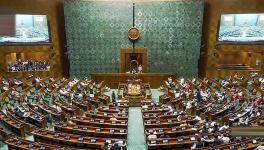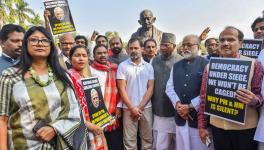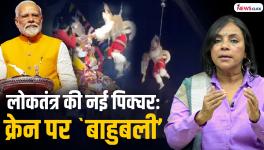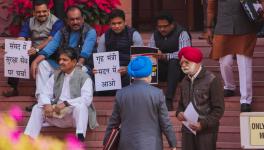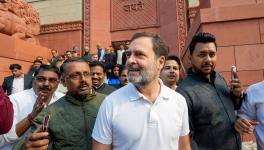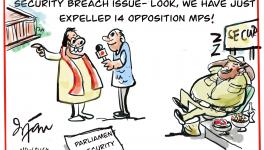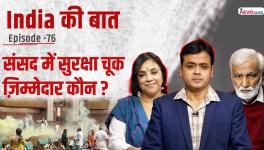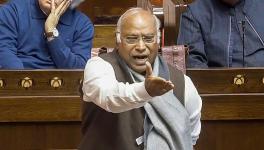What to Learn From Parliament Security Breach
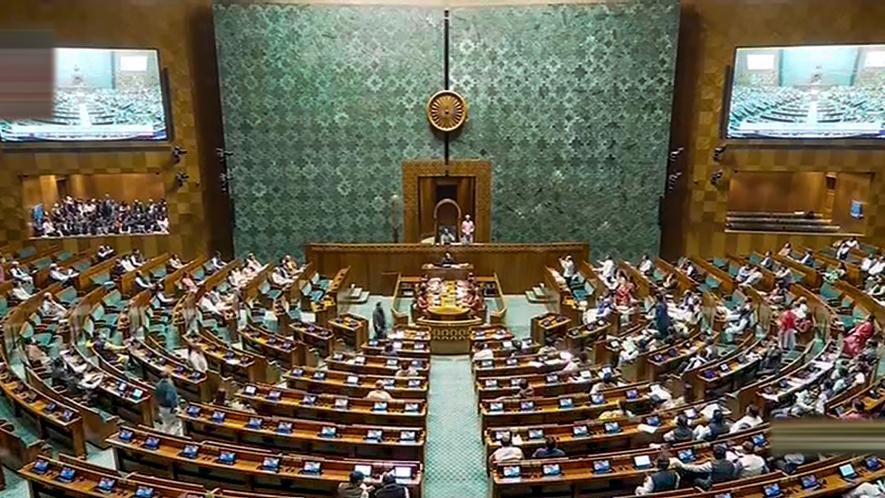
Parliamentarians in the Lok Sabha during the Winter session of Parliament, in New Delhi, Wednesday, Dec. 13, 2023. Image Courtesy: PTI
It is a great relief that nobody was harmed in the security breach in Parliament on Wednesday, December 13, 2023. However, it is a tragic coincidence that the breach occurred on the same day as the deadly and tragic Parliament attack in 2001.
On Wednesday, two persons from the visitors’ gallery trespassed the Lok Sabha chamber and opened smoke canisters in the House. Twenty-two years ago, too, there was a massive security breach on December 13. Armed terrorists had entered the Parliament premises and fired indiscriminately, killing several people, including Central Reserve Police Force officials and the unarmed Watch and Ward staff of the Lok Sabha and Rajya Sabha secretariats mandated to protect the apex legislature.
But today, we must go further in history: On December 13, in 1946, Jawaharlal Nehru, then Prime Minister of India’s interim government, had also moved the momentous Objectives Resolution, which eventually took the form of the Preamble of our Constitution.
Text of Objectives Resolution
India is a sovereign, independent republic
India should be a union comprising former British Indian territory, Indian States, and additional areas outside of British India and the Indian States that choose to join the Union
The territories that comprise the Union shall be autonomous units, exercising all powers and responsibilities of government and administration save those designated to or vested in the Union
All sovereign and independent India’s powers and authority, as well as its constitution, should derive from the people
All Indians must be guaranteed social, economic, and political fairness; equality of position and opportunity; equality before the law; and basic freedoms—of expression, belief, faith, worship, vocation, association and action—subject to the law and public morality
Minorities, backward and tribal communities, the poor and other disadvantaged groups must be well protected
The territorial integrity of the Republic, as well as its sovereign rights on land, sea and air, should be preserved in accordance with civilised country justice and law
The country would contribute fully and willingly to the advancement of world peace and the well-being of humanity.
President K R Narayanan’s Observations
On January 25, 2002, then President of India, KR Narayanan, in his Republic Day eve speech, invoked the Objectives Resolution in the context of the December 2001 security breach. He had observed with deep sadness that the terrorist attack had taken place on the anniversary of Nehru moving the resolution. In his speech, he had appealed to the nation to safeguard our democracy from terrorism by employing democratic methods and upholding the unity of people irrespective of faith.
Narayanan had alluded to some sections of our citizenry being unfairly blamed for terrorism based on their faith and urged the nation to discard such prejudices. Today, in the context of the breach of security of Parliament, the powers-that-be must be mindful of protecting citizens from harm, both physical—thankfully averted in Wednesday’s security breach—or in any other ways.
Indeed, if the security of Parliament cannot be safeguarded, it raises questions regarding the capability of the political regime to ensure the security of people who constitute the reservoir of power.
Security includes safeguarding and caring for our vast deprived sections, including our minorities. All this, along with physically securing every corner of the country—including, especially, the Parliament and its members and staff—is part of the duties of the state.
The reason for mentioning the Objectives Resolution today is that several entitlements on account of historic caste-based discrimination are in danger because majoritarianism increasingly defines and guides the policies of the ruling regime. (Recall that in recent times, India has been described as an “elected autocracy” and a “partially-free” country.)
Is it really possible to view the security breach in Parliament on the anniversary of a tragic event at the same hallowed site, without also noting the erosion of the integrity of all our institutions of governance?
Alarms have been ringing about the safety of our Constitution and democracy. That is the larger significance of December 13 in our history. Therefore, to safeguard our country in every way—from security breaches of all kinds—the powers-that-be must uphold the values set out in the Objectives Resolution Nehru moved on December 13, 1946.
(The author served as Officer on Special Duty to President of India K R Narayanan. The views are personal.)
Get the latest reports & analysis with people's perspective on Protests, movements & deep analytical videos, discussions of the current affairs in your Telegram app. Subscribe to NewsClick's Telegram channel & get Real-Time updates on stories, as they get published on our website.










